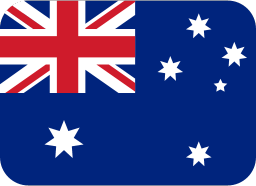Remote Marketing Team for Travel Agency UK
In today’s fast-evolving travel industry, reaching the right audience at the right time is crucial for a travel agency’s success. The UK’s travel market is highly competitive, with customers demanding personalization, convenience, and inspiration across every interaction. A remote marketing team offers a powerful solution, providing cost-effective, highly skilled digital expertise without geographical limitations. For travel agencies in the UK, a remote marketing team is more than just a cost-saving measure; it is a pathway to innovative, scalable, and effective marketing strategies that are essential in the modern landscape.
Why Choose a Remote Marketing Team?
Remote marketing teams bring unmatched flexibility, expertise, and the ability to scale quickly, which is particularly beneficial in the travel industry. Unlike in-house teams, remote teams allow travel agencies to access global marketing talent, ensuring that agencies can draw on diverse perspectives and skills to cater to a broad array of customer demands. For UK-based travel agencies, remote teams are uniquely positioned to address seasonality in demand, scale campaigns quickly, and provide specialized skills without the costs of full-time employment.
Key Roles in a Remote Marketing Team
A strong remote marketing team is composed of specialized roles that collectively work to build a cohesive brand experience:
- Content Creators: Create compelling travel stories, guides, and visuals to inspire potential travelers.
- Social Media Strategists: Manage platforms, schedule posts, engage with followers, and run targeted ads.
- SEO Experts: Optimize the agency’s digital presence for search engines, focusing on relevant keywords for increased visibility.
- PPC Specialists: Run cost-effective, targeted paid campaigns that drive traffic and bookings.
Choosing a Remote Marketing Agency for Travel
When selecting a remote marketing team, a travel agency should prioritize expertise in the travel industry, familiarity with UK market trends, and flexibility in delivering results. The agency should also look for transparency in reporting, a portfolio that reflects successful travel campaigns, and a clear strategy for measuring success across digital channels.
Specialized Travel Marketing Strategies
Marketing for travel requires tailored strategies that speak to travelers’ interests, desires, and budget considerations. From targeted advertising to personalized customer journeys, a remote marketing team can employ an array of tactics:
- Targeted Advertising: Creating custom ads that speak to specific demographics or interests, such as adventure travelers, family vacations, or luxury getaways.
- Influencer Marketing: Partnering with travel influencers who can showcase destinations and experiences, making them tangible and desirable for potential customers.
Digital Marketing Channels for Travel Agencies
In today’s digital landscape, travel agencies rely on diverse channels to engage with their audience. Each channel offers unique benefits and requires a specialized approach:
- Social Media: Platforms like Instagram and Facebook are ideal for visually appealing travel content, fostering a sense of community and inspiration.
- SEO: Optimizing the agency’s website and content for search engines to attract organic traffic, focusing on local and travel-specific keywords.
- Email Marketing: Reaching past customers and potential travelers with personalized offers, travel inspiration, and updates on new destinations.
SEO for Travel Agencies in the UK
SEO is vital in a competitive industry like travel. With high demand for online visibility, agencies need to rank for relevant keywords, improve their local SEO to capture nearby travelers, and optimize for mobile since many travelers search for information on their phones. A remote SEO team can conduct in-depth keyword research, enhance site speed, and create regionally targeted content that attracts UK travelers.
Social Media Marketing for Travel
Social media is a powerful channel for showcasing destinations, interacting with customers, and creating shareable experiences. A remote social media team can develop consistent posting schedules, run location-based ads, and engage with users to build community and brand loyalty.
The Power of Content Marketing
In travel, content marketing goes beyond blog posts; it’s about crafting narratives that resonate. From destination guides to cultural insights and travel tips, high-quality content positions a travel agency as a trusted resource. Storytelling, user-generated content, and visuals like video tours can significantly impact customer engagement and inspire travelers.
Influencer Marketing in the Travel Sector
Influencer partnerships allow agencies to tap into the reach and credibility of travel influencers. Influencers can create authentic, aspirational content that resonates with their followers, often leading to increased interest and bookings. A remote team can facilitate collaborations, manage relationships, and ensure alignment with the agency’s brand image.
Email Marketing for Travel Agencies
Email marketing remains a cornerstone of digital travel marketing, allowing agencies to deliver highly personalized offers and content. For travel agencies, segmenting subscribers based on interests or previous bookings allows for tailored email campaigns that convert well. Remote email marketing specialists can craft compelling campaigns that speak directly to customer interests, encouraging repeat bookings.
Pay-Per-Click (PPC) Advertising
With PPC advertising, travel agencies can drive targeted traffic and promote specific offerings effectively. A remote PPC expert can optimize campaigns for conversions, set budgets aligned with campaign goals, and adjust ads in real-time to maximize reach and engagement.
Leveraging Data and Analytics
A remote team can leverage data analytics to understand campaign performance and customer behavior. Tracking KPIs such as click-through rates, booking conversion rates, and engagement metrics helps teams refine their strategies to deliver results that matter.
Remote Project Management Tools
To coordinate across time zones and deliver seamless campaigns, travel agencies benefit from project management tools like Trello, Asana, or Slack. These tools foster collaboration, ensure timely communication, and help remote teams stay on track with project goals.
Building a Cohesive Remote Culture
Despite the geographical distance, remote teams can build a strong culture through regular check-ins, collaborative sessions, and virtual team-building activities. Establishing clear communication practices and fostering a sense of belonging are essential for high morale and productivity.
Legal Considerations for Remote Teams
Operating a remote team requires understanding legal implications, from data protection (GDPR compliance) to contracts with international workers. A clear contract with guidelines on confidentiality and data usage protects both the agency and the team members.
Ensuring Security in Remote Work
With remote teams, data security is paramount. Travel agencies handle sensitive customer data and must ensure that remote access is secured with encryption, strong passwords, and secure communication channels.
Measuring Success in Travel Marketing
Success in digital marketing is measured by meeting clear, predefined goals. For travel agencies, metrics such as conversion rates, website traffic, social media engagement, and return on ad spend provide insights into the effectiveness of marketing efforts.
Increasing Brand Visibility Online
A remote marketing team enhances brand visibility through SEO, social media engagement, and targeted advertising. Consistent online presence and active engagement with followers make a travel agency more discoverable and attractive to prospective travelers.
Attracting International Tourists
For UK travel agencies, reaching international tourists means tailoring content for different languages and cultural preferences. Offering multi-language content and targeting ads to specific regions are effective ways to attract a global audience.
Local Marketing Techniques for the UK Market
Localized campaigns that emphasize UK destinations, cultural highlights, and seasonal travel packages appeal to both locals and tourists. Collaborating with UK-based influencers or tourism boards can increase visibility among potential customers.
Trends in Travel Marketing for 2024
As we approach 2024, trends like social commerce, virtual tours, and AI-driven personalization are shaping travel marketing. These innovations allow travel agencies to engage customers in new ways, offering enhanced digital experiences that drive interest and bookings.
Benefits of Hiring a Remote Team Over In-House
Remote teams provide access to a global talent pool, often at a lower cost than in-house teams. Flexibility, scalability, and a diversity of expertise make remote marketing teams an ideal solution for travel agencies in a dynamic market.
Challenges of Managing Remote Teams
While remote teams offer advantages, they also present challenges, such as coordinating across time zones and maintaining clear communication. Investing in effective project management tools and setting clear expectations helps address these challenges.
Conclusion
In a rapidly evolving travel market, a remote marketing team offers UK travel agencies the expertise, flexibility, and innovation needed to stay competitive. With the right strategies and tools, remote marketing teams deliver impactful, results-driven campaigns that boost brand visibility, drive bookings, and foster lasting customer relationships. The future of travel marketing is digital, and embracing remote expertise is the key to unlocking new growth opportunities.









